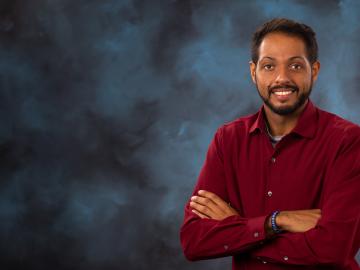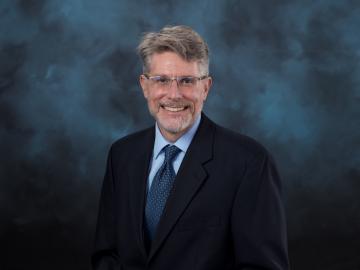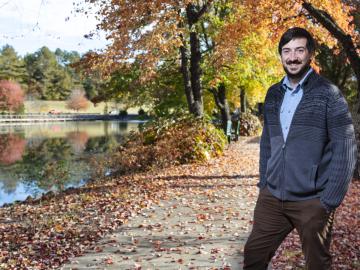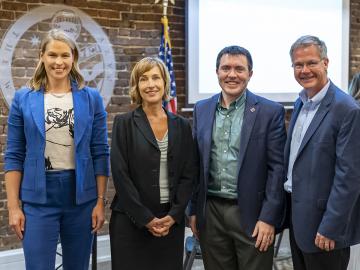
Filter News
Area of Research
- Biological Systems (1)
- Biology and Environment (51)
- Biology and Soft Matter (1)
- Computer Science (1)
- Energy Science (23)
- Fusion and Fission (5)
- Materials (18)
- Materials for Computing (1)
- National Security (14)
- Neutron Science (8)
- Nuclear Science and Technology (6)
- Quantum information Science (1)
- Supercomputing (50)
News Type
News Topics
- (-) Advanced Reactors (12)
- (-) Bioenergy (68)
- (-) Composites (11)
- (-) Frontier (44)
- (-) Machine Learning (37)
- (-) Molten Salt (2)
- (-) Partnerships (36)
- (-) Physics (34)
- (-) Summit (40)
- 3-D Printing/Advanced Manufacturing (56)
- Artificial Intelligence (77)
- Big Data (45)
- Biology (80)
- Biomedical (42)
- Biotechnology (25)
- Buildings (30)
- Chemical Sciences (35)
- Clean Water (16)
- Computer Science (111)
- Coronavirus (19)
- Critical Materials (5)
- Cybersecurity (14)
- Education (2)
- Emergency (3)
- Energy Storage (32)
- Environment (116)
- Exascale Computing (51)
- Fossil Energy (6)
- Fusion (38)
- Grid (32)
- High-Performance Computing (81)
- Hydropower (6)
- Isotopes (33)
- ITER (4)
- Materials (51)
- Materials Science (55)
- Mathematics (8)
- Mercury (7)
- Microelectronics (3)
- Microscopy (23)
- Nanotechnology (17)
- National Security (60)
- Neutron Science (82)
- Nuclear Energy (66)
- Polymers (9)
- Quantum Computing (35)
- Quantum Science (48)
- Security (16)
- Simulation (42)
- Software (1)
- Space Exploration (13)
- Statistics (2)
- Transportation (30)
Media Contacts

John “Jack” Cahill is out to illuminate previously unseen processes with new technology, advancing our understanding of how chemicals interact to influence complex systems whether it’s in the human body or in the world beneath our feet.

Having lived on three continents spanning the world’s four hemispheres, Philipe Ambrozio Dias understands the difficulties of moving to a new place.

ORNL appointed Peter Thornton as director of its Climate Change Science Institute, or CCSI, effective November 1, 2022.

Matthew Craig grew up eagerly exploring the forest patches and knee-high waterfalls just beyond his backyard in central Illinois’ corn belt. Today, that natural curiosity and the expertise he’s cultivated in biogeochemistry and ecology are focused on how carbon cycles in and out of soils, a process that can have tremendous impact on the Earth’s climate.

Tomás Rush began studying the mysteries of fungi in fifth grade and spent his college intern days tromping through forests, swamps and agricultural lands searching for signs of fungal plant pathogens causing disease on host plants.

The Earth System Grid Federation, a multi-agency initiative that gathers and distributes data for top-tier projections of the Earth’s climate, is preparing a series of upgrades.

ORNL researchers are deploying their broad expertise in climate data and modeling to create science-based mitigation strategies for cities stressed by climate change as part of two U.S. Department of Energy Urban Integrated Field Laboratory projects.

A crowd of investors and supporters turned out for last week’s Innovation Crossroads Showcase at the Knoxville Chamber as part of Innov865 Week. Sponsored by ORNL and the Tennessee Advanced Energy Business Council, the event celebrated deep-tech entrepreneurs and the Oak Ridge Corridor as a growing energy innovation hub for the nation.

ORNL has provided hydropower operators with new data to better prepare for extreme weather events and shifts in seasonal energy demands caused by climate change.

A new paper published in Nature Communications adds further evidence to the bradykinin storm theory of COVID-19’s viral pathogenesis — a theory that was posited two years ago by a team of researchers at the Department of Energy’s Oak Ridge National Laboratory.


